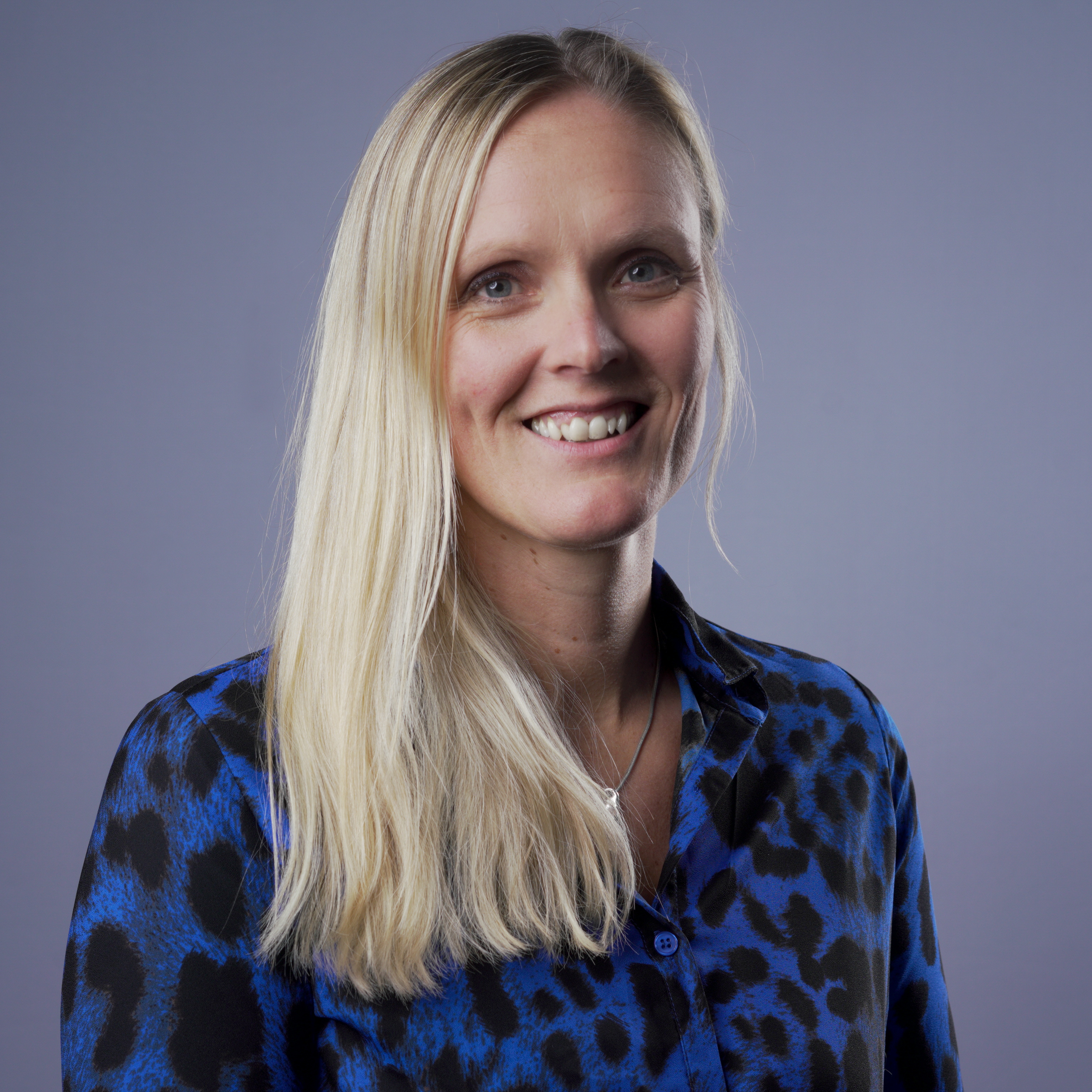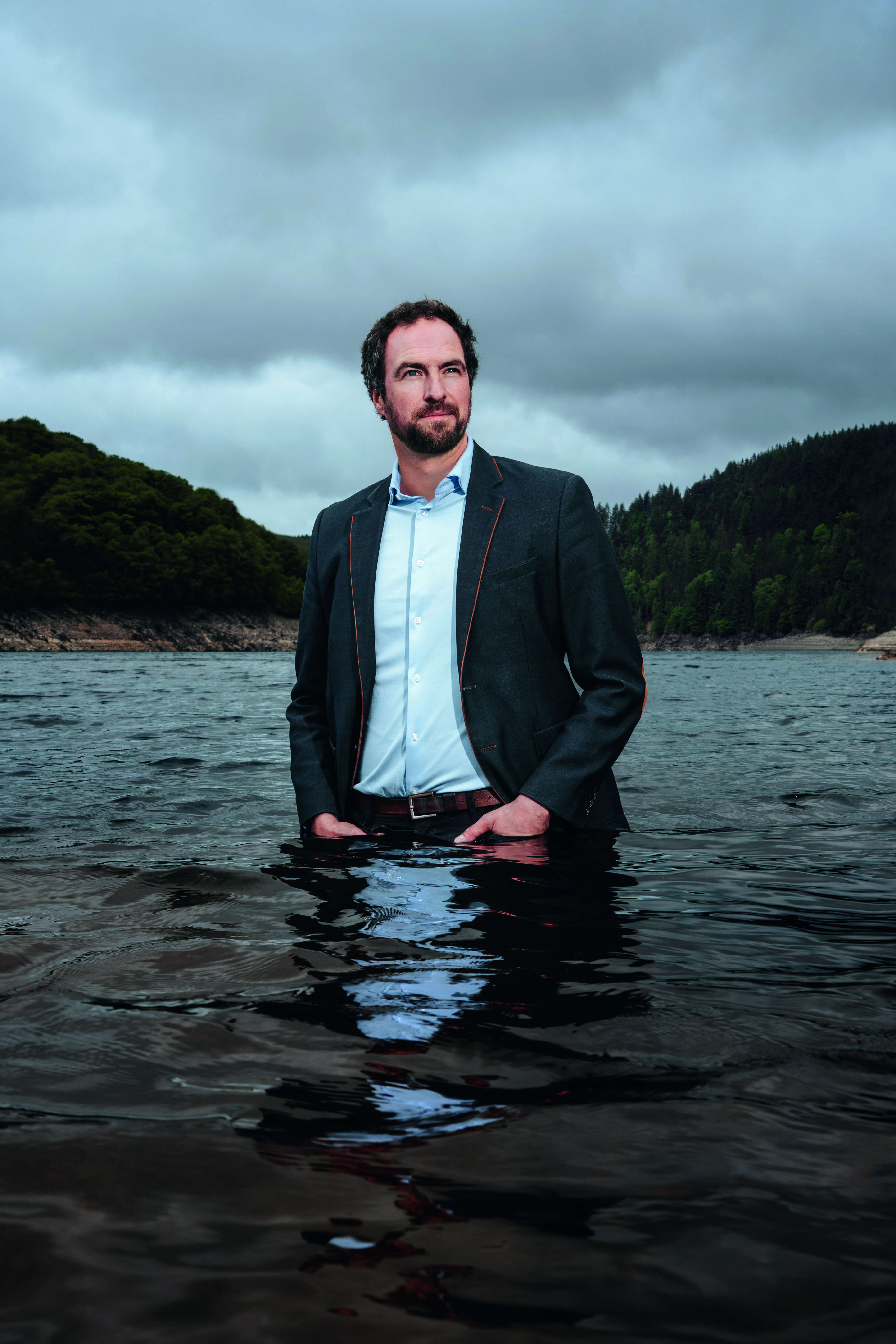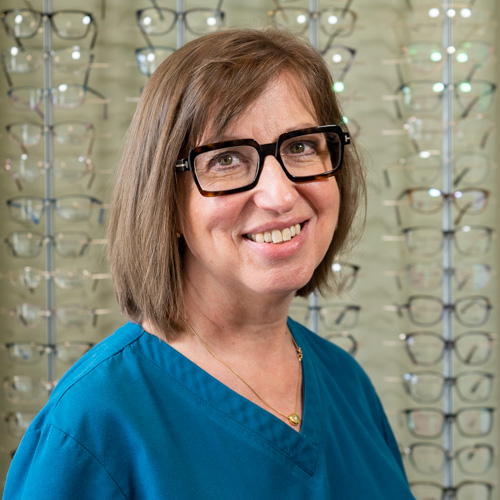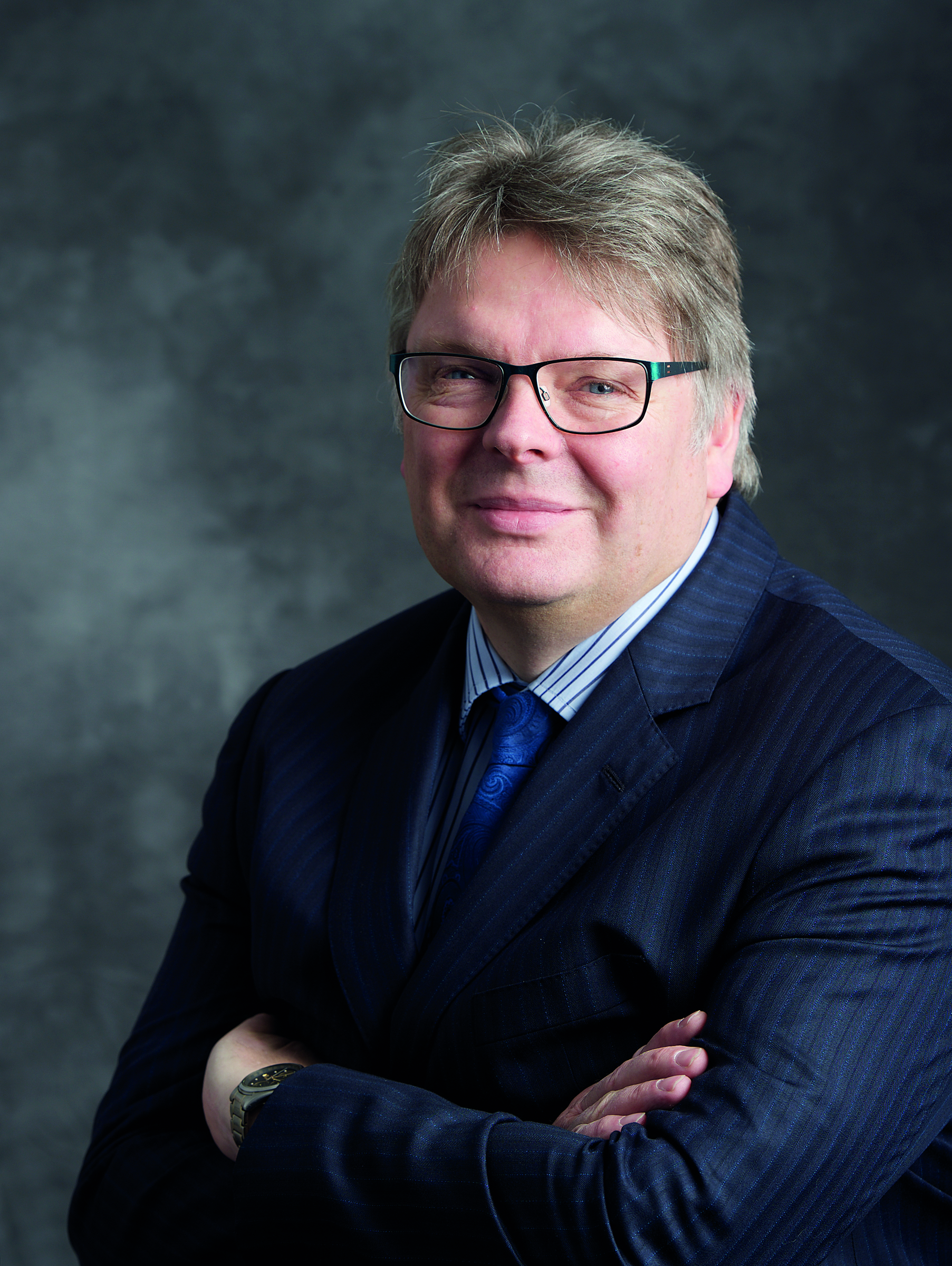- OT
- Life in practice
- Practitioner stories
- Reflecting on 2022
Reflecting on 2022
OT spoke to representatives from across the profession for their views on the year that has been, and their stand-out moments

On the High Street Christmas lights blink on in the afternoons, bright against the dark evenings. Snow is piled up in the corners of the garden that the winter sun does not quite reach, and only the last few days of the yearly diary still remain.
As the end of 2022 nears, OT asked optometrists, practice owners, optometry associations, and members of the AOP for their reflections on the past year, their stand-out moments, and thoughts on what might arise in 2023.
New systems, pathways and policies

Sarah Schumm, chair of Optometry Wales
“2022 has been a monumental year for optometry in Wales. We have been navigating through the effects of the COVID-19 pandemic at a time of economic fragility, all whilst negotiating a new general ophthalmic services (GOS) contract with the Welsh Government. Our workforce has worked tirelessly through all the obstacles, and continued to deliver existing services and follow newly-formed pathways to the highest quality possible for the population.
“Key reflections are to continue to involve all our stakeholders in the decision-making processes during the implementation phase of the new contract. Delivering the new contract is dependent on the workforce, and Optometry Wales will continue to seek their views and be the voice of the profession going forward into 2023. Formal financial negotiations are now due to occur on an annual basis and the learnings we took from the first round in 2022 have given us the foundations to build further positive changes.”
My stand-out moment of 2022 was:
“The agreement of a new contract between Optometry Wales and the Welsh Government has to rank highly. The substantially increased investment into optometry demonstrates the acknowledgement of the vital role that optometry plays in primary care, and we look forward to seeing practices and practitioners alike flourish with the new opportunities that that presents.”
My expectations for 2023
“We have already seen an increase in enquiries from members of the workforce who wish to undertake higher qualifications – testament that the optometry profession in Wales is embracing the changes. We are ready for it.”

Tim Morgan, National Clinical Lead for Wales General Ophthalmic Services, NHS Wales
“As we end 2022 the world looks bleak. There are wars, climate and humanitarian catastrophes, and geopolitical tensions are rising. So often football is a tonic from real life, but this year ended with the most uncomfortable and challenging FIFA World Cup. It’s all so overwhelming that it’s easy to not even feel part of that world – marooned in a test room far away from reality.
“But I’ve been inspired working alongside incredible people in Wales this year, working to evolve the service to ensure prevention and wellbeing is embedded into the offer to patients. It’s critical we see our patients as whole people, in whole communities, building for future generations.
“Optometry at its best isn’t overwhelmed by the outside and faraway world, but sees itself as part of it. It’s a small part for sure, but that still carries a responsibility to influence both as positively and as broadly as possible.”
My stand-out moment of 2022 was:
“I was in town and a chap said: ‘Hey, you’re my optometrist! It’s one year since my last cigarette. You convinced me that if I wanted to quit, I could... So I did.’
“This is a regular thing that optometrists discuss daily. It was a neat reminder that optometry has influence – especially when we practise with respect, interest, and kindness.”
Optometry has influence – especially when we practice with respect, interest, and kindness
Eilidh Thomson, Optometry Scotland vice chair
“The optometry profession in Scotland has proven throughout the COVID-19 pandemic that it is capable of managing a range of ocular conditions that may have previously been referred to secondary care.
“In 2023, we wish to progress the clinical services that community optometry can offer to the Scottish population. The launch of the community glaucoma service will revolutionise care for glaucoma patients, allowing their treatment to be managed by specialist optometrists in the community. This service will allow patients to receive care closer to home, and ease pressure on secondary care services.
“We are also excited to progress general ophthalmic services in Scotland by looking at how adopting new technology can enhance patient care.”
My stand-out moment of 2022 was:
“Securing the first increases to GOS fees in over a decade. The fee increases amount to over 7.5% from the start of 2021. Optometry Scotland is working with the Scottish Government to ensure an annual fee review mechanism to enable the profession to maintain the highest standards for GOS.”
.jpg?rev=35dda34e28c441c5b0e49f587bcde267&hash=8698CC91F73DE1F3CD380A62B15A2347)
Giles Edmonds, clinical services director, Specsavers
“As we have emerged from the COVID-19 pandemic and its impact on the eye health of our population, the situation remains incredibly challenging. While the NHS faces huge waiting lists and long-standing resourcing issues, the winter and cost of living crisis in the UK are piling on more pressure. All of this poses a huge challenge for everyone working in optometry and the wider sector.
“In November, we highlighted that over 600,000 people were waiting for NHS ophthalmology appointments, with more than 24,000 waiting longer than a year. Glaucoma accounts for 20% of NHS outpatient appointments – but we know this only scratches the surface, as up to half of all cases are undiagnosed. The stark reality is that unless we take co-ordinated action now, we will see more people in our communities put at risk and experience irreversible vision loss.”
My standout moment of 2022 was:
“The work in each nation to help people understand the need for regular eye tests stands out and, in particular, the call for a national eye health strategy in England with the successful passage of Marsha de Cordova’s ten-minute rule bill. This feels like a huge opportunity for everyone in optometry to bring forward solutions and shout about the good work that community optometrists do every day.”
My expectations for 2023
“Specsavers is all about changing lives through better sight – and we believe that by the entire sector working together, though co-ordinated action, we can better support our patients and the NHS.”
We have had many challenges but achieved so much with the support of the profession
Voices from the AOP
Carolyn Ruston, policy director:
“What a year it has been. As my first year at the AOP, and working within the optometric profession, we have had many challenges, but have achieved so much with the support of the profession.
“The GOC call for evidence and consultation on the Opticians Act and associated guidance took up a lot of our time over the summer, but the outcome was that we submitted a comprehensive response with, in my view, an unprecedented amount of data, case studies and thoughts from our members.
“The policy team have also been very busy alongside our Board, Council, and Policy committee, setting a number of projects and programmes that align to the AOP’s strategy. Of note is the work that the team, led by Kathy Jones, is doing to map the importance of optometry in supporting good eye health across our whole life course.
“The work we have been doing in the public affairs and wider stakeholder engagement space has developed at pace and exceeded all expectations from my point of view. We are now a partner of the influential The Eyes Have It (TEHI) partnership, joining Fight for Sight, Royal National Institute of Blind People, Macular Society and the Royal College of Ophthalmologists, in campaigning for greater recognition of the importance of good eye care.”
Stand-out moments for the AOP policy team in 2022:
A stand-out memory for me was how AOP members responded to the GOC call for evidence, with 2445 members taking part in our survey. Not only was this a fantastic example of how our members responded at scale, but also how we worked cross-sector to ensure we had some aligned messages and themes to take forward.
This year, not only did we contribute to securing the appointment of a national clinical director for eye care, but our presence at Westminster Eye Health Day on 19 October as part of TEHI was a stand-out moment.
The presence of the then minister for primary care, who committed to addressing eye care as a priority, gave support to our common endeavour. Whilst this was in the context of a significant political ‘movement,’ our ask has still been taken forward through much work and commitment from the AOP and our sector partners, resulting in an early day motion heard in November, and led by Marsha de Cordova MP, for a national plan for eye care, of which a second bill reading will be heard in March 2023.
Expectations for 2023:
“Our commitment to excellence in policy delivery remains, both strategically through our work cross-sector and across the health and care system, such as our role at integrated care board, place and neighbourhood level. But also, in our continuing delivery alongside the communications team of high-quality guidance and content to support our members day-to-day.”
Adam Sampson, chief executive:
“Marking the beginning of life in a post-COVID-19 world, 2022 was always going to be a year of unique challenges, adaption, and not insignificant strides towards progress as we feel our way in the new normal.
“In my view, optometry is now poised for significant change – with the causes rooted in technology, online retail coupled with inexorable pressure on national healthcare by way of the pandemic and the current economic crisis.
“In view of this, 2022 at the AOP has been a redoubling of efforts as we prepare for the future. For us, this came in the form of an ambitious five-year strategy which recognises the need to reflect the transformed landscape in which the profession is operating. Which is why, through our five pillars, we seek to address key challenges such as the way health and social care is commissioned and delivered, innovation in technology, alongside regulatory and legislative reform.
“In 2023, this will translate into our influencing agenda through partnerships like The Eyes Have It coalition or taking the learnings from the test beds of Optometry First. We also expect to see the next phase of the GOC’s Call for evidence this coming year. With over 2000 members taking part in our previous research in this area, we are immensely grateful and hope to emulate similar levels of engagement as we secure a future profession that we can all be proud of.”
Business as usual, adaptability, and standing up for change
Shamina Asif, optometrist and chair of Dudley Local Optical Committee
“As we come to the end of 2022, I am sure you will agree that we should be grateful that we have been given another year to make a difference to people’s sight and lives as optical professionals.
“This year has seen the return to some level of normality, with support for pre-reg students and supervisors reinstated, issues around equality, diversity and inclusion bought to the forefront through the AOP’s 100% Respect campaign, mental wellbeing awareness prioritised, along with useful discussions around myopia management.
“As LOC chair, I feel that COVID-19 has accelerated the biggest change within optometry in my career – we are finally becoming valued as healthcare professionals in the community. There are discussions on IT interconnectivity, shared care schemes, and workforce development in optometry across all Integrated Care Boards. For once, for the NHS it is not a matter of choice but of how they must work with optical professionals.”
My expectations for 2023
We should be grateful that we have been given another year to make a difference to people’s sight and lives as optical professionals

Polly Dulley, optometrist and director of Aves Optometrists, a Hakim Group independent practice
“For optometrists, the fact that it was ‘business as usual’ for the whole of 2022 was unusual within healthcare. It has remained difficult to get a face-to-face GP appointment, and the hospital eye service in our area has an enormous backlog of patients. Some glaucoma patients have not been seen face-to-face since pre-COVID-19, and the waiting list for cataract surgery is growing daily.
“We have been seeing patients face-to-face daily, and this has enabled us to offer reassurance and support to many patients who are worried about their eye conditions. We continue to see a lot of Minor Eye Condition Services (MECS) patients, for all kinds of urgent and non-urgent conditions. This work sits alongside our regular patients, coming in for eye exams and contact lens checks.
“The pandemic has highlighted the clinical ability of our profession to the general public – that we’re not simply a vehicle for new glasses, but a vital link for patients to access eye healthcare within the community.”
My expectations for 2023
COVID-19 showed that optometry is a fantastic community resource

Professor Nicholas Rumney, senior IP optometrist and director at BBR Optometry, a Hakim Group independent practice
“The positives outweigh the negatives. The mainstream media and politics in general have a lot to answer for in terms of attitude and generating a negative outlook.
“Optometrists and their dispensing optician colleagues just get on and deliver high standards of service and have finally woken up to: a) the true value of what they do in both society and financial terms, and b) are not prepared to play second fiddle to an NHS that treats their patients with scant regard.
“This has finally reached the ears of the politicians in the House of Commons, when Marsha de Cordova MP spelt out the parlous nature of primary and secondary ophthalmic care in England. I’m sure it won’t be long before the secondary care that IP optometrists deliver in their communities is appropriately recognised. We are seeing record demand for our services, for which there is no foreseeable demographic end.
“I wish I was 20 years younger. In 2023, we see the newly-designed integrated optometry courses start which, whilst not perfect, will see the next group of graduates much better equipped as ‘eye doctors’ – yes, you heard that right.”
My stand-out moment of 2022 was:
“Undoubtedly, Marsha de Cordova mastering and explaining her brief. I do hope NHS England and the Department of Health were listening, hard.”
My expectations for 2023
Professor James Wolffsohn, head of optometry school, Aston University
“Even before the pandemic, the demand for ophthalmology services was greater than the provision, and as we emerge from the pandemic, the waiting lists are higher than any other speciality of medicine (at least in the West Midlands).
“More than ever, optometry needs to step up in its support of healthy ageing and management of eye disease in the population. This includes public health issues such as myopia, where the rates are rising and will continue to do so unless the profession acts urgently. “Every Dioptre Matters” due to the increased risk or retinal pathology and visual impairment, and hence “Every Child Matters” who attends your practice as we can accurately predict the development of myopia around six years of age.
“With the availability of scientifically validated, regulated, specific spectacles and contact lenses for myopia control, this is not a difficult service to offer and needs to be led proactively by optometry.”
My stand-out moment of 2022 was:
“In 2022, the Birmingham Commonwealth Games were a fantastic spectacle (no pun intended) and demonstrated the best of British. Aston University was a major sponsor and provided the equipment and much of the staffing for the eye clinic in the medical centres of the athletes’ villages. Working with eye care volunteers from across the region and beyond and experiencing their dedication and expertise will be long remembered.”
Dr Scott Mackie, independent practice owner and optometrist in Lanarkshire
“It seems so long ago when we were furloughing our staff, wearing full personal protective equipment, and having to adapt to a daily-changing clinical environment.
“Throughout 2022, we enjoyed the positives that the pandemic brought, such as direct access to hospital records and a list of all medications patients are taking, using an Emergency Care Summary portal from the GP, and upskilling – all NHS Education for Scotland Glaucoma Award Training (NESGAT) optometrists in Scotland now manage stable glaucoma patients in the practice. We also use the Near Me video app for patients who cannot attend the practice.
“The adaptability to change and work with other professionals, such as ophthalmology, allows the patients to be the centre of care and is a better use of NHS resources. Post-pandemic, it should be remembered that the ability to change or not is mainly defined by the flexibility or otherwise of systems and not people. Optometry and my dispensing optician colleagues want, in the main, to adapt, stand up and be counted, not dismissed in the new patient journey.”
My stand-out moment of 2022 was:
“Being able to have a face-to-face meeting with all my peers and the industry at large at the Scottish Optical Conference. We are, first and foremost, a species that requires interaction and company, and I think everyone was getting a bit fed up of another virtual meeting.”
Karan Vyas, optometrist and AOP Councillor
“I feel this year has been the year of activism and change in the profession. The profession is finally standing up and making the case for eye care in a way that we haven’t done in the past. We are discussing difficult issues which have been swept under the carpet for too long.
“Optometry in 2022 has seen some big changes: a new contract in Wales, the appointment of a clinical director for eye care in England, significant increases in GOS fees in Scotland, and a new role for IP optometrists in Northern Ireland. We have also seen practitioners coming forward and talking about their experiences of discrimination.
“Seeing the National Eye Health Strategy finally being tabled in the House of Commons has the potential to bring eye care forward as a clear national priority after being neglected for so long. Although it won’t make waves straight away, it shows with collaboration and clear aims, we can push for change.”
With collaboration and clear aims, we can push for change
Holistic support, patient loyalty, strong practice teams, and expanding comfort zones

Andrew Bridges, director of professional services at Leightons Opticians and Hearing Care
“Securing a strong foundation of clinical and dispensing excellence, alongside tailored and lifelong learning and education programmes for practitioners, will ensure every patient experience is second-to-none.
“Supporting patients holistically has become an even higher priority in the last few years, especially when some patients have not been able to access care from traditional sources. We must be agile and flexible to adopt new processes, protocols and technology to support each of our new and loyal existing patients alike.”
My expectations for 2023
“The creation of learning and development programmes for each optometrist and dispensing optician must be linked to tailored pathways to support career development and personal development plans.”
I’ve never been more proud of myself

Nazmeen Ahmed, joint venture optometrist director at Valli Opticians in Blackburn
“Blackburn was very hard-hit in terms of COVID-19. The town centre still felt the turbulence of that into 2022 and it was hard in the town centre practices. A lot of my patients have to get the bus into town, so it took a long time for them to have the confidence to use public transport and make that journey again. It was very hard being a business owner in that time.
“A lot of patients that were coming in needed a little bit more time, care, and attention. It is nice that we have the time to do that in our practices. Loyalty to our practice became stronger this year. Throughout COVID-19, a lot of people weren’t local, and you feel a strong loyalty from the people that came back to us.
“The COVID-19 Urgent Eye Care Service (CUES) has also really taken off. I think that is one good thing that came out of the situation.”
My stand-out moment of 2022 was:
“I graduated from my MBA. It changed the way I see my practice and now I can go forward with the knowledge that I’ve gained and use the best of both my skillsets. I started the MBA at the beginning of 2020 and it was a massive challenge – learning on your own during the pandemic – but I worked through it. I’ve never been more proud of myself.”
My expectations for 2023
Stephanie Lipsey-Liu, independent practice owner, Nottinghamshire
“My reflections for 2022 are simple. Always put your patients first, and make your recommendations as if they were to your own family. That means never under or over-selling but giving people informed options to make their own decisions.
“Stick by your prices for clinic time (assuming you’re charging enough). This means if you have a bad sales day, the business won't take as much of a hit. You are the expert, so charging for your time is entirely appropriate.
“Finally, appreciate your staff. They are the backbones of the organisation.”
My stand-out moment of 2022 was:
“Getting our optical coherence tomography machine. We've picked up a few signs of early glaucoma already that possibly wouldn't have been noticed that soon. It's great to be able to offer this high-level screening to all our patients if they want it.”
My expectations for 2023
Dr Jasleen Jolly, optometrist and associate professor at Anglia Ruskin University’s Vision and Eye Research Institute
“As more optometrists have expanded into extended roles, this has presented the opportunity for our skills and knowledge to be more widely appreciated. We are awarded a BSc at undergraduate degree level, which is not only vocational but is also a science degree, equipping us with the critical thinking and analysis skills to expand our areas of expertise.
“There have been more opportunities than ever for optometrists to get involved in research in a variety of ways over the past year, which we have expanded on in our recent article in OPO.
“This is a great time for optometry to come together with other disciplines and stretch the boundaries of our comfort zone, not forgetting our roots as visual scientists. This enhances patient care, provides variety in work, and keeps us at the forefront of developing evidence-based medicine and developing the medicine of the future.”
My stand-out moment of 2022 was:
“Caring for patients is not just about eyes, but also creating a more accepting society. Presenting at parliament, advocating for diversity and inclusion in science, technology, engineering, mathematics, and medicine (STEMM) includes welcoming more people with disability, neurodivergence and chronic illness into the workforce. Disability does not eradicate the skills and knowledge that the person has.”
OT would like to thank all our contributors for their time in sharing their reflections. We wish all our readers a happy New Year.




Comments (1)
You must be logged in to join the discussion. Log in
Anonymous05 January 2023
At Tim Morgan, can you explain why the Fifa World Cup has been an uncomfortable experience for you for end of 2022. With no alcohol and less violence, arrests and domestic violence. With gifts left for all those that attended the closing ceremony and the Bisht being worn by the winner to honour and respect as has been done in the past, how exactly is this an uncomfortable end? Please explain.
Report Like 159